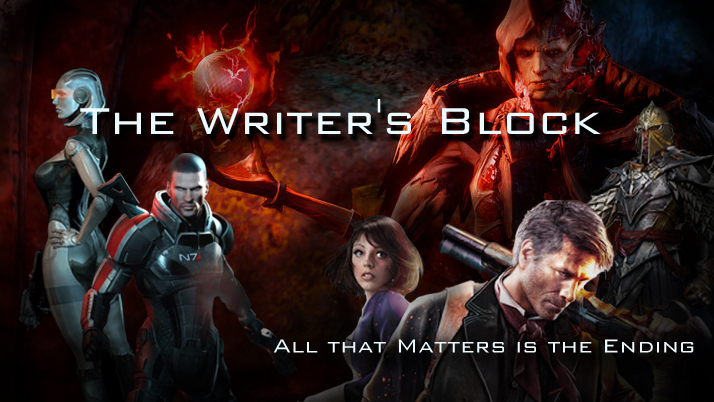My family and I have a holiday tradition, every Christmas we all sit down and watch movies together. We do the same thing everyday of the week, but since it’s Christmas and the movies we watch are “Christmas Movies”, it technically counts as a holiday tradition. Anyway, like every self-respecting TV Station, we put on “It’s a Wonderful Life” and watch the adventures of George Bailey and his guardian angel Clarence battle the diabolical Mr. Potter. Or something like that. Every year that we watch this movie, however, I’m confronted the cold, bitter truth of the movie: Mr. Potter isn’t the true villain.
It’s a Wonderful Life isn’t about thwarting Potter, of course, but about taking the time to look around and enjoy the life you have, even if on the surface, it doesn’t look that great. I’ve watched this movie so many times that this message has become part of my subconscious, and yet there is a more important lesson that we can learn from this movie. It’s a lesson that humanity has been learning for centuries, and when we finally do learn this lesson, it will change the world. To illustrate my point, and make myself look witty and sophisticated in the process, I offer you the following quote by Edmund Burke:
“All that is necessary for the triumph of evil is that good men do nothing.”
You see, Potter isn’t really the worst character in the story, he’s an evil caricature of a man, like Scrooge McDuck or, perhaps more appropriately, Donald Trump. His evil, twisted nature, makes it easy to fixate on him as the main bad guy, but in reality Mr. Potter is simply slave to his nature. To be angry at him is like being angry at the scorpion that stung you, sure you can hate the scorpion all you want and introduce it to the heel of your boot, but the scorpion was simply acting instinctively. Potter is the same way. He cannot change what he is, and while we can and should vilify him for that, he’s not the true cause of George Bailey’s suffering in the final act of the film. The true villain, the one upon who we should heap blame on, and cast stones at as he walks down the street, is this asshole right here:
Oh yes, the guy that pushes Potter’s wheelchair, he doesn’t even have a name, but he’s the most important character in the entire story because he illustrates the most dangerous characteristic we, as a people, possess: the ability to feel indifference towards the suffering of others. To turn a blind eye to the crimes of others, because “Hey, it’s not my problem.”
In the final act of It’s a Wonderful Life Uncle Billy (who is so badass he has a Raven for a pet) accidentally hands an envelope filled with $8000 to Mr. Potter while taunting him with a newspaper. The evil Mr. Potter cackles, and practically rubs his hands together with gleeful malice, as he watches a now frantic Uncle Billy search for the missing money. Now let’s rewind a bit, to when Mr. Potter discovers the money in the newspaper. He’s not alone in the room. Mr. Potter’s wheelchair is essentially a god damn throne on wheels, which would be pretty heavy to roll around, and a man of Mr. Potter’s arrogance would never stoop to pushing himself around. So he has his handy Wheel-Chair Pusher, as he will now be called, with him at all times. Now the Wheel Chair Pusher saw the money, he knew it wasn’t Potter’s, and if he has any deductive reasoning skills, probably can guess the money belongs to Uncle Billy. So what does he do: Simply grab the money from Mr. Potter’s arthritic hands, and return it? Perhaps call the police? Publically humiliate Potter by telling the reporters the truth?
No: he does absolutely nothing.
And therein lies the true rump of this story. Once again, Potter can’t help being evil anymore than the Scorpion can keep from stinging, but Mr. Wheel Chair Pusher is making a conscious choice to allow this to continue. Wheel Chair Pusher keeps on pushing, even as Mr. Potter calls reporters, and police, and lawyers to dismantle a beneficial organization and send an honest, innocent man to jail. Even when George Bailey comes in, obviously distraught, and performing another selfless act by taking the blame for his Uncle’s mistake, our Wheel Chair Pusher stands silent. Now of course this is a movie, and Wheel Chair Pusher outing his boss for stealing the money would have made for a damn boring conclusion, but this kind of thing happens all the time. Right now as your reading this, someone, somewhere, is turning a blind eye to someone else’s suffering because it’s not their problem. So yeah, it’s a movie, but it brings up an interesting human dilemma that is worth discussing, so shut up and keep reading.

Now I’m going to be stomping on this boot with the mighty boot of Godwin’s Law, because Hitler and the Holocaust are incredibly relevant to this discussion. Eli Wiesel, author of Night, once said:
“I swore never to be silent whenever and wherever human beings endure suffering and humiliation. We must always take sides. Neutrality helps the oppressor, never the victim. Silence encourages the tormentor, never the tormented.”
He said this because it was silence and indifference that led to the Holocaust. Hitler started it, and the Nazi’s perpetrated it, but it was average, ordinary people that allowed it to happen. Just imagine the amount of people that were required to carry out such a systematic extermination process: the soldiers who guarded the ghettos, the civilians in the city that saw them being rounded up, the engineers on the trains that brought new victims to the death camps, the SS soldiers who guarded the camps and looked into the eyes of suffering people everyday. Not everyone was content to sit back and watch this unfold: Oskar Schindler used his ammunition factory to help Jews escape from Germany (while simultaneously never actually producing a single shell for the Nazis), Raoul Wallenberg blatantly abused his diplomatic immunity to help get Jews safely out of Hungary. Most impressively Herman Goering’s own brother, Albert, used his family’s influence to actively fight the Nazis and free countless Jews from concentration camps.
Now imagine if everyone were willing to put themselves at risk in order to save someone else? Hitler’s Nazi regime would have disintegrated years before Russia had a chance to curb stomp it, and tens of millions of lives would have been saved. Humanity is slow to learn, and even slower to change, but I believe we’re getting there, even if the finish line is still a long way off.
So let’s all take a lesson from It’s a Wonderful Life and not be the Wheel Chair Pusher. Don’t turn a blind eye to injustice simply because that injustice hasn’t been visited upon you, and never remain silent when you witness suffering because you aren’t suffering. I don’t care if it’s a kid being bullied on a playground, a woman being mugged in an alley, or genocide being committed in a far away country, none of these are acceptable and we should not remain silent when we witness them.







Leave a comment